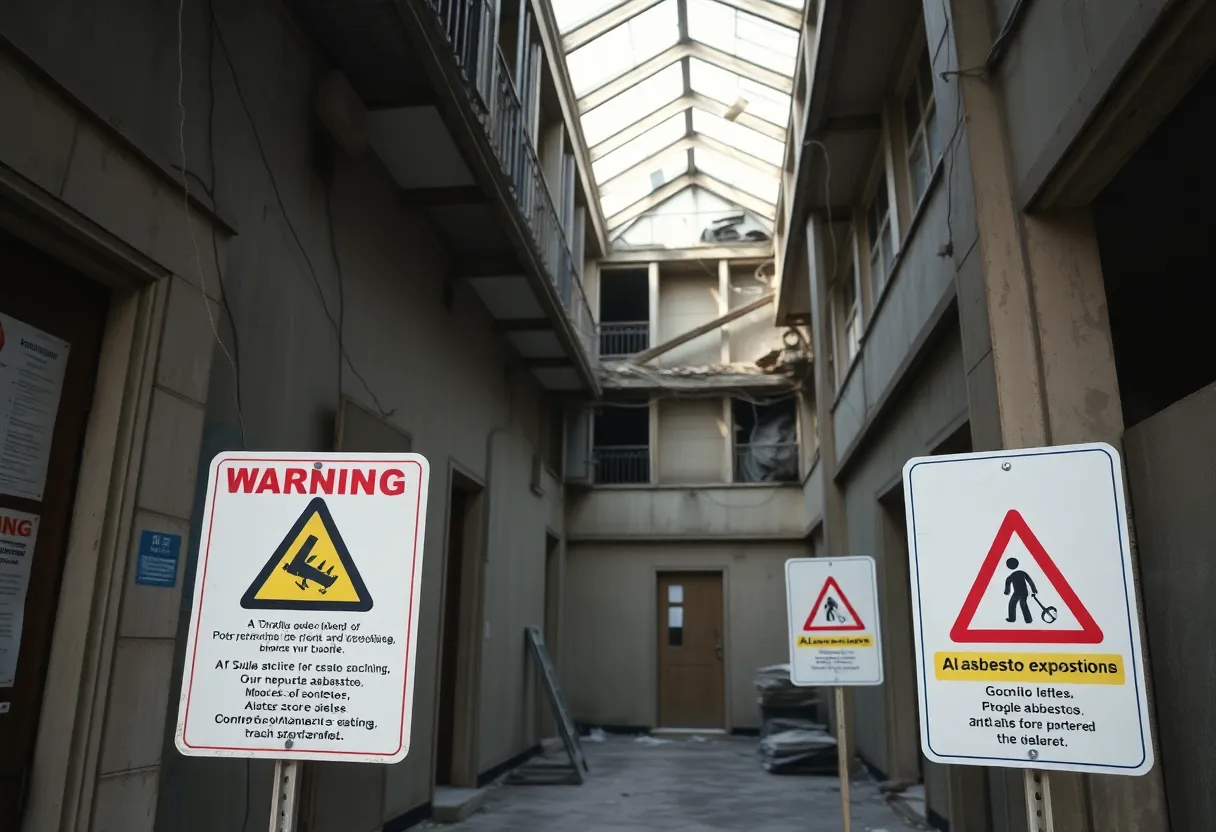News Summary
Stuart Beaton, a retired civil servant, is suing the Home Office after being diagnosed with malignant mesothelioma, a terminal lung cancer linked to asbestos exposure during his time at MI5’s Thames House. Beaton alleges negligence due to the lack of safety precautions during renovations in the late 1980s. His case highlights the systemic failures in protecting workers from hazardous materials and raises significant concerns regarding workplace safety protocols.
Retired Civil Servant Sues Home Office After Terminal Cancer Diagnosis Linked to Asbestos Exposure
In a harrowing case that underscores the dangers of asbestos exposure, retired civil servant Stuart Beaton has initiated legal proceedings against the Home Office, alleging negligence during his tenure at MI5’s headquarters, Thames House. Beaton was recently diagnosed with malignant mesothelioma, a devastating and terminal form of lung cancer, raising serious concerns regarding the safety protocols in place during the building’s refurbishment in the late 1980s.
Days of Danger: A Toxic Workplace
Beaton worked at Thames House from 1986 to 1988, a period marked by extensive renovations meant to upgrade the premises for its new role as the main office for the Security Service. As an analyst seconded from the Home Office, Beaton was not only responsible for understanding the complexities of the prison service but also for navigating a building fraught with health risks.
During this time, he alleges he was inundated with clouds of asbestos dust. His claims include the alarming details of how debris accumulated extensively in common areas such as stairwells, lifts, and corridors. Beaton recalls sharing tight spaces with construction workers who were often clad in contaminated clothes, posing a constant threat to his health.
Lack of Safety Precautions
Legal documents reveal that there was a glaring absence of protective measures during the refurbishment. Beaton alleges that the Home Office did not provide crucial protective clothing or ensure the maintenance of asbestos-free surfaces in the workplace. Additionally, the building was described as “very old” and “in extremely poor condition” – conditions that should have warranted more serious safety protocols.
Despite the visible dangers, colleagues were reassured that the refurbishment would be a temporary phase. However, conversations among staff reflected a growing concern as discussions highlighted the known hazards associated with asbestos exposure. Beaton’s manager reportedly downplayed the risks, insisting that the levels of dust inhaled were minimal and therefore not a cause for concern.
Health Consequences and Diagnosis
Fast forward to February 2023, Beaton’s health took a grave turn when he was diagnosed with malignant mesothelioma after doctors discovered lesions on his lungs. Currently undergoing a regimen of immunotherapy and chemotherapy, Beaton faces several debilitating symptoms, including fluid accumulation in his left lung, which requires frequent drainage. His health troubles have culminated in a 40% respiratory disability, forcing him to abandon his career.
Legal representation for Beaton, John Browne, emphasises the inevitability of his condition worsening as time goes on. The stark reality is that he is expected to suffer a reduction in his normal life expectancy by up to 23 years due to this aggressive cancer.
The Legal Battle Ahead
In his suit, Beaton is not only demanding accountability but also bringing attention to the systemic failures that exposed him and his colleagues to hazardous asbestos levels without adequate safety measures. He asserts that the Home Office’s reassurances were misleading, essentially betraying the trust of the workers it was responsible for protecting.
As the legal proceedings unfold, the Home Office has remained tight-lipped, refusing to comment on the ongoing case. However, Beaton’s fight against the governmental agency represents a broader struggle concerning how historical practices related to asbestos exposure continue to imperil lives. The outcome of Beaton’s legal battle may open the door for other victims seeking justice for similar experiences.
Conclusion: A Call for Awareness and Change
As the dangers of asbestos exposure become increasingly acknowledged, cases like Beaton’s serve as a painful reminder of the potential hazards lurking in workplaces. His battle against the Home Office not only highlights individual suffering but also raises crucial questions about the responsibility of organizations to safeguard the health of their employees.
Deeper Dive: News & Info About This Topic
HERE Resources
Additional Resources
- BBC News: Retired Civil Servant Sues Home Office
- Wikipedia: Asbestos
- The Guardian: Former Civil Servant Sues Home Office
- Google Search: Asbestos Exposure Health Effects
- NHS: Malignant Mesothelioma
- Encyclopedia Britannica: Asbestos
- HSE: Asbestos Information
- Google News: Asbestos Legal Case
- National Cancer Institute: Mesothelioma Treatment



















